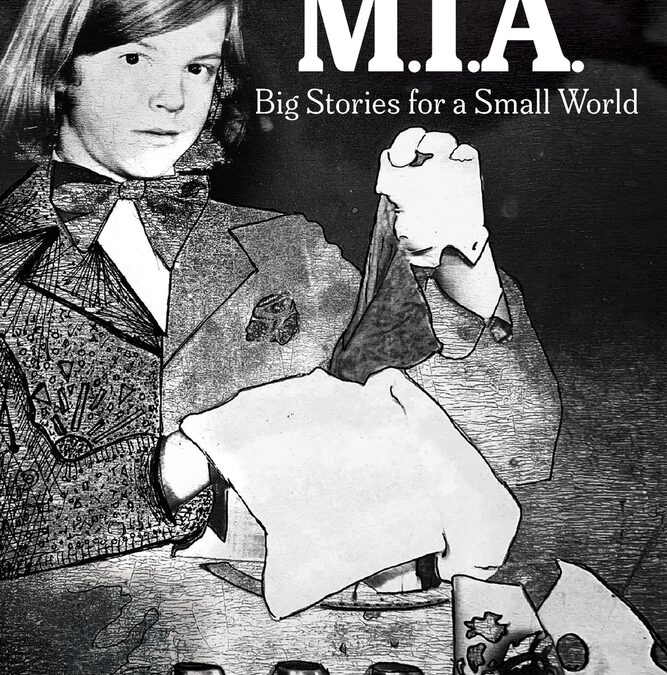Donovan’s M.I.A.: Big Stories for a Small World, by Sid Lenington, isn’t quite a book of short stories. Three of its four stories might better be called novellas. In the titular “Donovan’s M.I.A.,” which reads like a literary memoir, the author shares a dark family odyssey, a decades long search for a beloved brother who vanished into addiction at the same time as the author’s cherished ventriloquist dummy, Donovan.
“A Penny for His Thoughts” is a toxic road trip featuring deception and desperation. “A Case Study of 1990s America and Elsewhere,” which is really a small book in its own right, offers a lengthy story of pers onal redemption. This is not the tacky, self-help kind of personal redemption, but rather a gritty, honest first-person account of a man with flexible morals and a rap sheet, literal and figurative. He’s a drunk and a drug addict who steals and exploits his way through a Detroit that’s crumbling in front of him, only to discover some semblance of peace in the battle fields of the Middle East. “The Savvy Gardener” is a more toned-down first-person account of a retired schoolteacher who works as a gardener in a wealthy Jewish suburb.
onal redemption. This is not the tacky, self-help kind of personal redemption, but rather a gritty, honest first-person account of a man with flexible morals and a rap sheet, literal and figurative. He’s a drunk and a drug addict who steals and exploits his way through a Detroit that’s crumbling in front of him, only to discover some semblance of peace in the battle fields of the Middle East. “The Savvy Gardener” is a more toned-down first-person account of a retired schoolteacher who works as a gardener in a wealthy Jewish suburb.
Lenington is a skilled writer. He draws you into the deeply absorbing inner worlds of his characters. The stories all feature what you might call mental road trips, extended excursions into stream of consciousness—where a song heard on the radio turns into page after page of commentary on the life of the musician who sang it, or a glimpse at a homeless man (whose head resembled the top of a broken beer stein) triggers a series of guesses at the unlivable traumas he had to survive to find his way to his particular boxcar.
Lenington invites you to join his cast of low lifes in a realistic exploration of what it means to live a life devoid of meaning, purpose, and morality. His characters are thieves who tell addict stripper girlfriends “not to make a mess” when they threaten to kill themselves. They murder because it suits them. They take drugs and get blackout drunk, only to go searching for more poison once they regain consciousness.
Family dysfunction is an uncredited co-star in this series of stories. Abusive mothers, drug-addicted fathers who can’t snap out of their haze long enough to do anything, kids who flee terror at home to find solace in torturing rats to death… pain is on full display throughout the pages.
Sobriety emerges as a theme in several places, and it would seem a good guess that Lenington has some experience in “the rooms,” as AA is sometimes called. So, there’s hope in all of this, but it’s in pretty short supply.
If I had one criticism of the work, it’s that Lenington has a tendency to over-write in certain places. I guess one’s reaction to that (or agreement with that assertion) would depend on how deeply one gets into the characters. Overall, I found it a satisfying read.
